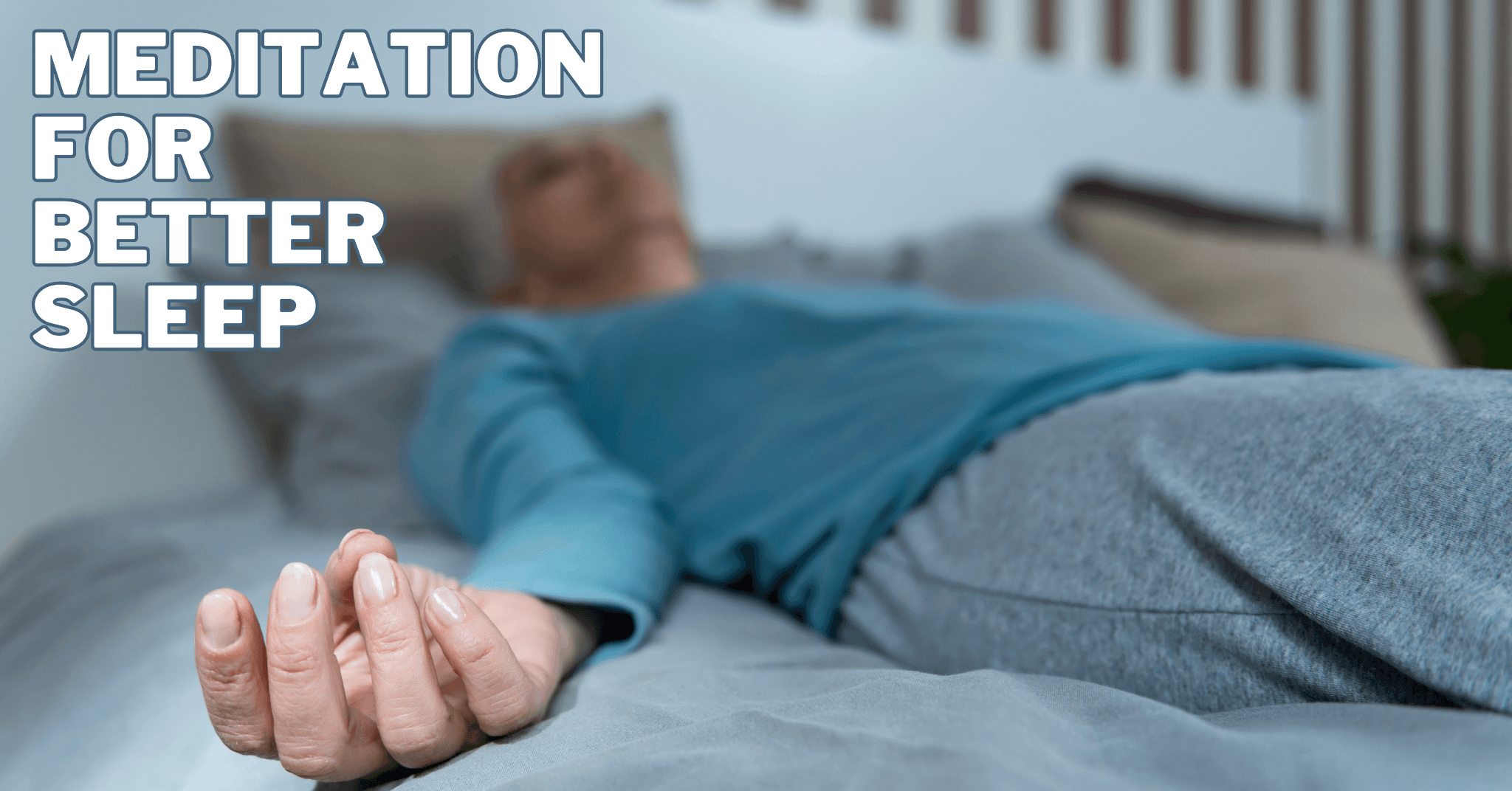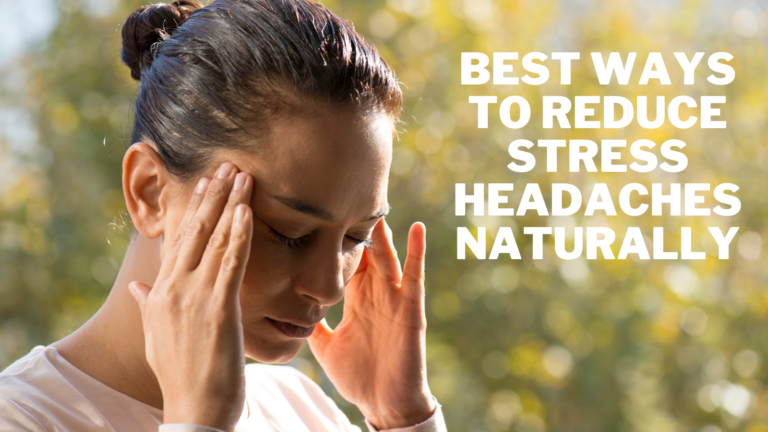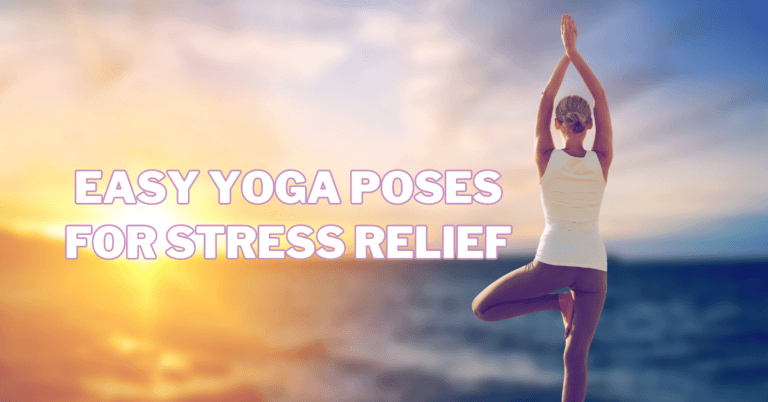How To Use Meditation For Better Sleep
How To Use Meditation For Better Sleep
Pursuing a restful night's sleep can seem like an unattainable dream in the fast-paced world of contemporary life, where stress and technological distractions frequently upset the delicate equilibrium of health.
A restless concoction that keeps us up late tossing and turning can be created when daily life stressors are combined with the constant chatter in our minds.
This article explores the profound relationship between meditation for better sleep and the cultivation of a calm and peaceful mind amid life's chaos.
Meditation becomes a valuable ally in the quest for better sleep, revealing its transformative power beyond stress reduction and mental clarity.
A valuable ally in the pursuit of better sleep, meditation has shown benefits beyond its well-known effects on stress reduction and mental clarity.
This article reveals the transformative power of mindfulness in calming the mind and fostering the peaceful sleep our bodies yearn for as it delves into the profound relationship between meditation and the quality of our sleep.
Join us on a journey to discover the art of meditation as a pathway to the serene realm of restorative sleep and unlock the secrets to embracing each night with a newfound sense of peace and rejuvenation.
Understanding The Sleep-Meditation Connection
The relationship between meditation and sleep is a complex interaction between psychological health and scientific ideas.
Research has uncovered the complex connection between better sleep and meditation, providing insight into the profoundly altering effects of mindfulness techniques on the brain.
It has been demonstrated that meditation, especially mindfulness meditation, alters brain activity.
Long-term meditation alters brain activity, particularly in regions associated with emotional processing and stress reduction, according to functional magnetic resonance imaging (fMRI) studies.
Less connected than the amygdala, which plays a key role in the brain's stress response, is the prefrontal cortex, which governs executive functions and emotion regulation.
The psychological advantages of these neurological alterations facilitate better sleep. As the body's “fight or flight” response calms the sympathetic nervous system, meditation becomes an effective method for lowering stress.
Meditating creates a relaxation response, which lowers cortisol and encourages the release of neurotransmitters necessary for melatonin and serotonin production and the induction and maintenance of sound sleep.
The connection between meditation and sleep is based on the psychological balance reached through focused attention and the visible alterations in the brain's structure.
Meditation becomes an important ally in creating an atmosphere that supports the vital embrace of deep, high-quality sleep by impacting neural pathways and encouraging relaxation.
Types Of Meditation For Better Sleep
Embarking on a journey to improve sleep quality through meditation involves exploring various techniques, each uniquely designed to foster a tranquil state of mind conducive to rest.
Here are some key meditation practices tailored to enhance sleep:

1. Mindfulness Meditation
Mindfulness meditation is a transformative practice focused on nurturing present-moment awareness.
In this technique, individuals cultivate a non-judgmental observation of thoughts and sensations, allowing them to arise and dissipate naturally.
The mind eventually settles into a calm state by focusing on the breath or physical sensations.
The deliberate act of observing without judgment reduces stress, creating mental spaciousness conducive to relaxation.
As practitioners consistently engage in this mindful awareness, a sense of calmness permeates, paving the way for a restful night's sleep.
Mindfulness meditation thus becomes a powerful tool in promoting mental clarity and the serenity necessary for a peaceful sleep experience.

2. Progressive Muscle Relaxation (PMR)
Progressive Muscle Relaxation (PMR) is a systematic practice that systematically eases physical tension through deliberate muscle engagement and release.
PMR enhances awareness of bodily tension by initiating from the toes and advancing through various muscle groups.
As practitioners tense each muscle group before consciously relaxing it, accumulated stress dissipates.
This process fosters a deepened mind-body connection and promotes a profound state of relaxation.
By the end of the sequence, the body is notably more at ease, creating optimal conditions for a restful night's sleep.
PMR's efficacy lies in its ability to unwind physical and mental facets, offering a holistic approach to relaxation.
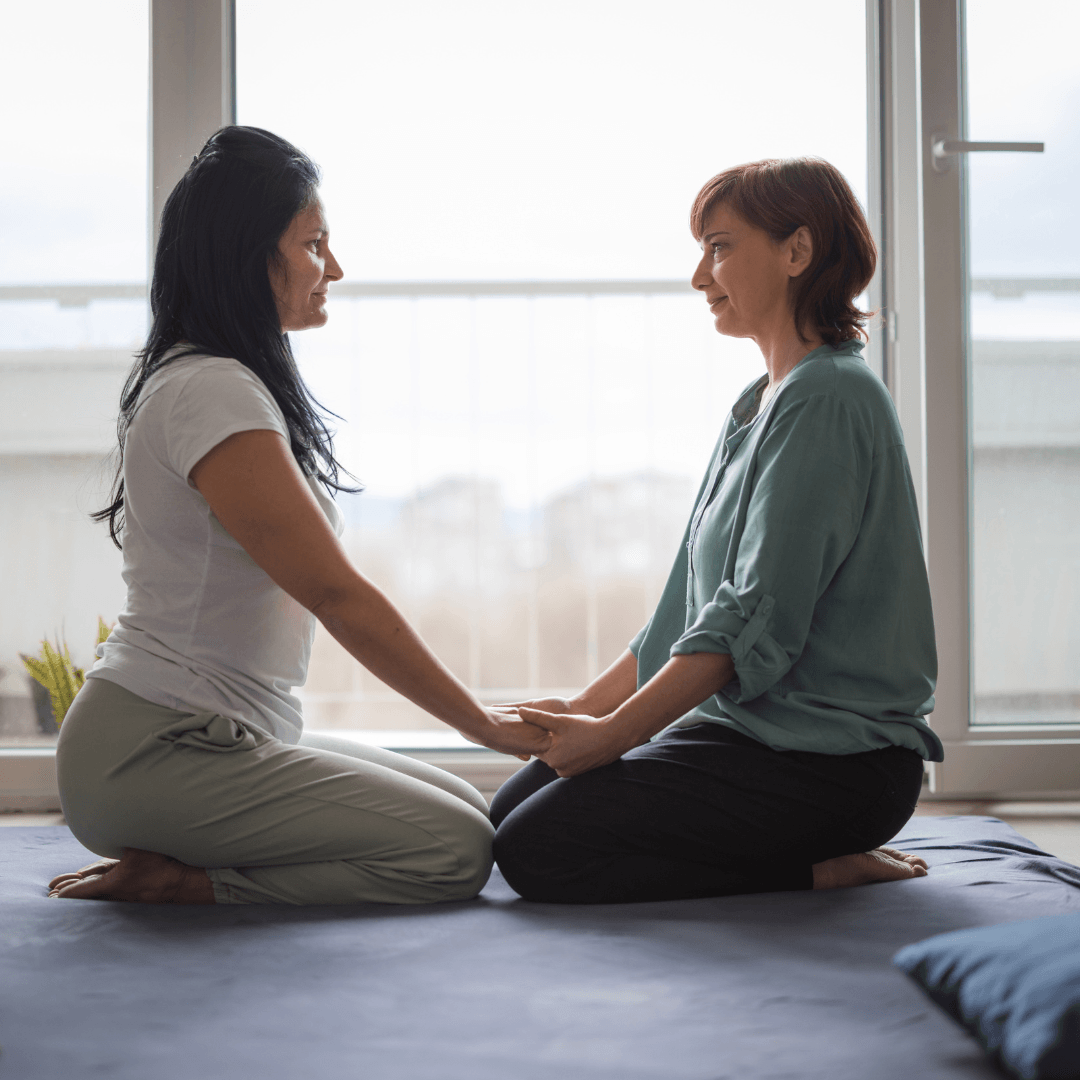
3. Guided Imagery
Guided imagery in meditation for better sleep is a transformative practice that transcends the ordinary with vivid and descriptive narration, transporting the mind to serene mental landscapes.
This technique engages multiple senses as practitioners visualize and immerse themselves in calming scenes crafted by the guidance.
Guided imagery encourages the mind to let go of stress and tension by vividly describing peaceful environments, creating a sensory-rich experience that promotes profound tranquillity.
This imaginative journey becomes a powerful tool in the quest for restful sleep, as it cultivates a mental haven of serenity, easing the transition from wakefulness to a peaceful and rejuvenating night's sleep.

4. Yoga Nidra
Yoga Nidra, often termed “yogic sleep,” is a guided meditation method for conscious relaxation.
During this practice, individuals recline and attentively follow verbal instructions that guide awareness through various body parts.
As a potent relaxation tool, Yoga Nidra systematically alleviates physical tension while fostering profound calmness and inner stillness.
As participants traverse the guided journey, the mind unwinds, and the body enters a state of deep relaxation, resembling the tranquillity achieved during natural sleep.
By incorporating Yoga Nidra into a pre-sleep routine, practitioners pave the way for a serene mental landscape, optimizing conditions for a refreshing and rejuvenating night's sleep.
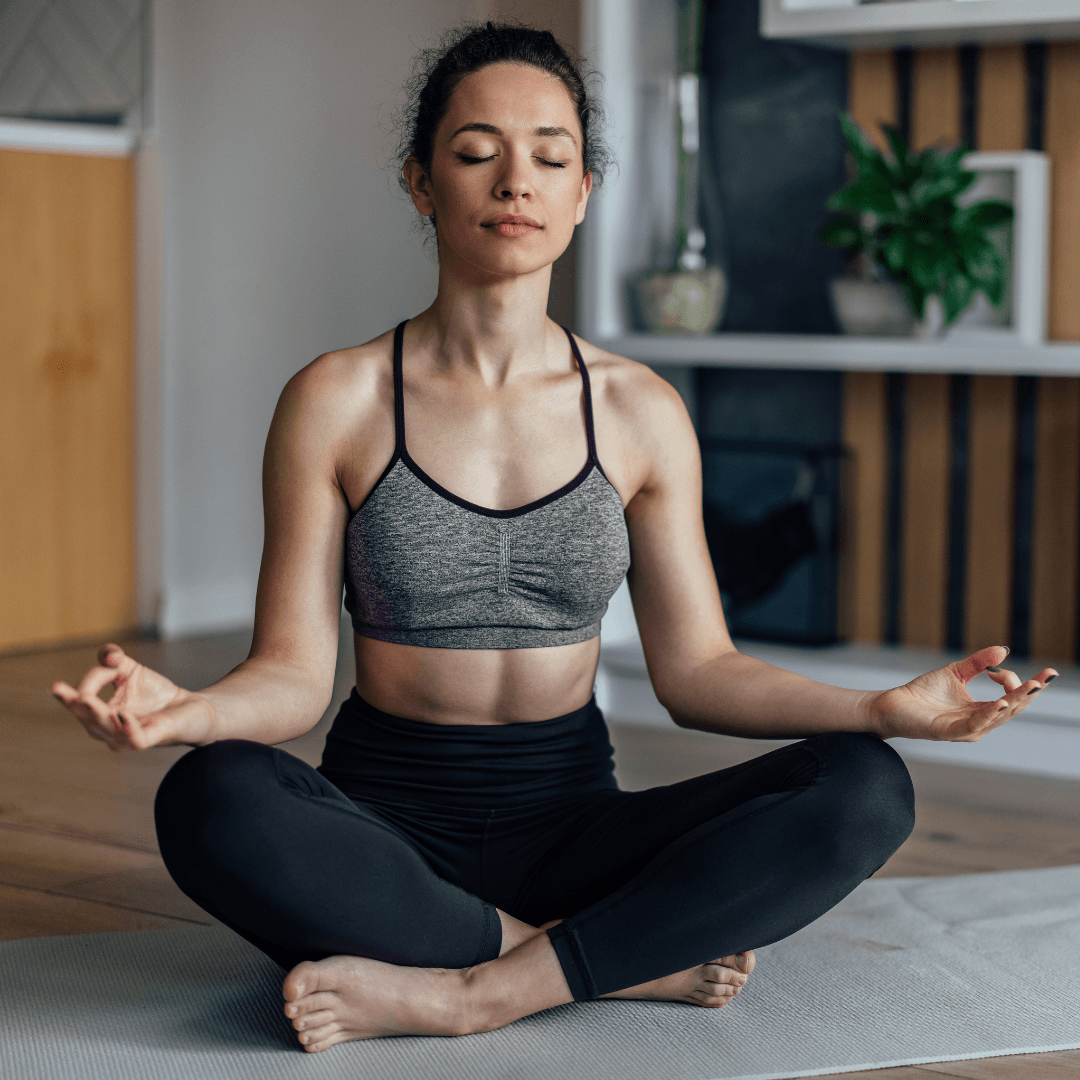
5. Deep Breathing Exercises
Deep breathing exercises, like diaphragmatic or abdominal breathing, form a cornerstone of meditation practices for better sleep. This technique involves intentional breath control to activate the body's relaxation response.
The parasympathetic nervous system is activated as individuals engage in slow, deliberate breaths, directing their focus to the rhythmic patterns.
This activation induces a profound sense of calm, reducing the impact of stress and anxiety. By prioritizing mindful breath control, practitioners prepare both the body and mind for a restful night's sleep, establishing a foundation for relaxation that can counteract the day's challenges.

6. Loving-Kindness Meditation (Metta)
Cultivating love and compassion for oneself and others is a component of Metta meditation. By fostering positive emotions and shifting focus away from stressors, this practice contributes to emotional well-being.
When practiced before bedtime, Metta meditation can create an emotional environment conducive to a restful night's sleep.
Incorporating these diverse meditation techniques into your nightly routine provides personalized avenues for achieving a calm and relaxed mental state, ultimately contributing to better sleep and enhanced overall well-being.
7. Warm Bath Meditation
The Warm Bath Meditation involves taking a pre-bedtime soak infused with calming scents like lavender. As you immerse in the warm water, focus on its embrace, allowing muscles to unwind.
This sensory experience and mindful breathing induce relaxation, preparing the mind for a restful night's sleep.
The ritual creates a tranquil sanctuary, signalling the body to unwind and transition into a peaceful slumber.
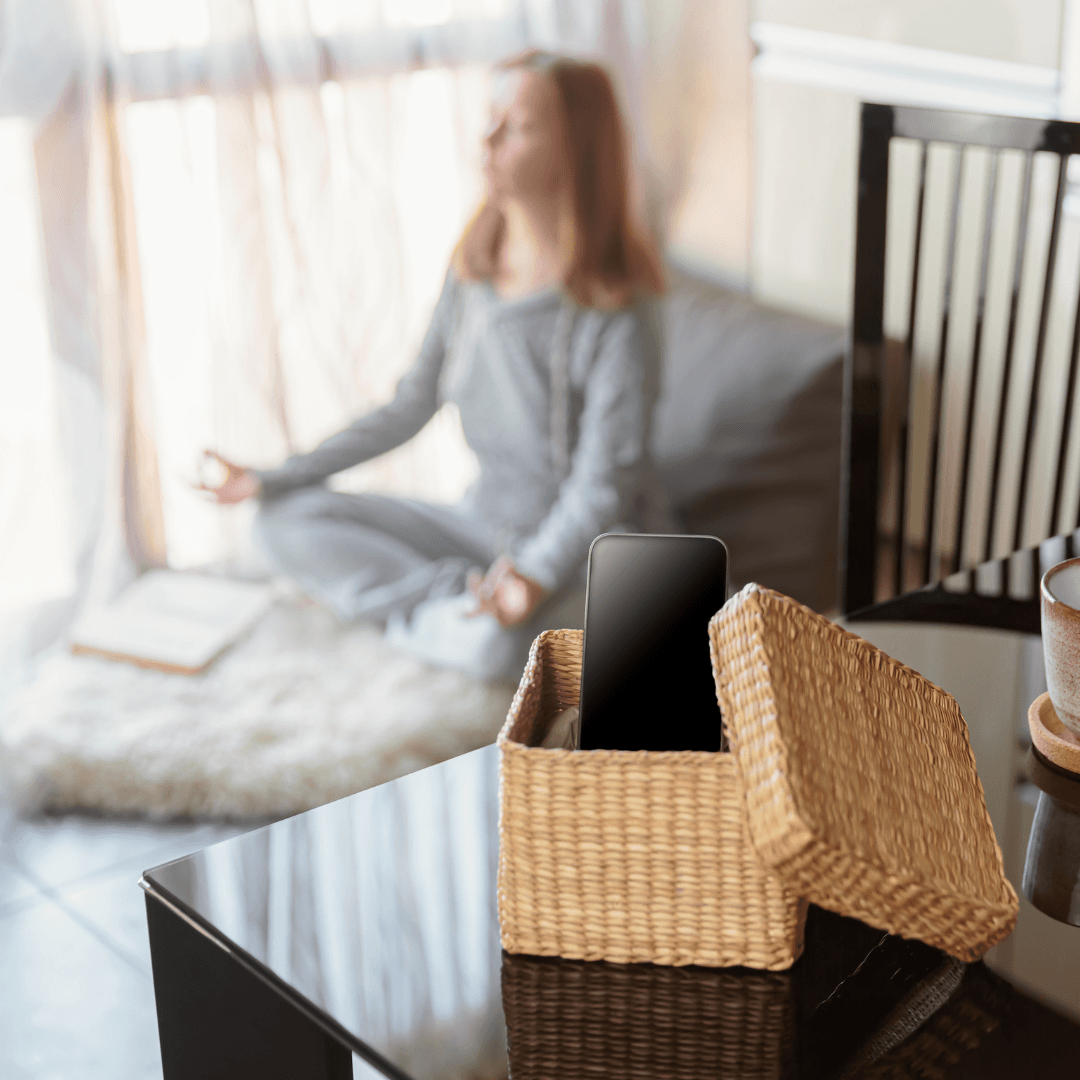
8. Digital Detox Meditation
Digital Detox Meditation offers respite from the digital deluge of modern life, creating a serene, screen-free sleep sanctuary.
It involves intentional disconnection from electronic devices, promoting mindfulness to counter disruptions caused by screen exposure.
Techniques include breath-focused mindfulness, visualizing a tranquil, tech-free space, and guided relaxation to release physical tension.
This transformative pre-sleep ritual mitigates screen-induced stimulation, fostering a calm mental space for deep, uninterrupted sleep.
Digital detox meditation enables individuals to reclaim tranquillity, connect with natural evening rhythms, and establish a technology-free haven for rest within a concise 100-word description.
9. Journalling Before Bed
Journaling before bed is therapeutic, offering a constructive outlet for thoughts, worries, and gratitude.
Taking a few moments to put pen to paper helps externalize concerns, preventing them from lingering in the mind during the night.
Documenting gratitude fosters a positive mindset, promoting a sense of well-being. This reflective act clears the mental clutter and provides a tangible closure to the day's experiences.
The rhythmic motion of writing and acknowledging challenges and blessings contribute to a more peaceful mindset, facilitating a smoother transition into a restful night's sleep.

10. Qi Gong Or Tai Chi
Qi Gong and Tai Chi, ancient Chinese practices rooted in martial arts, offer gentle and deliberate movements with potential benefits for relaxation and improved sleep.
Characterized by slow, flowing motions, these exercises integrate breath control, mindfulness, and gentle stretches.
A short session before bedtime allows individuals to release physical tension accumulated throughout the day effectively.
These practices' deliberate and meditative nature promotes a heightened mind-body connection, soothing the nervous system and inducing a calm state.
The intentional focus on breath and movement cultivates mindfulness, redirecting attention from daily stresses.
A pre-sleep regimen that includes Qi Gong or Tai Chi becomes more holistic as it helps the body relax and promotes mental calmness, leading to a more restful and refreshing sleep.

11. Sound Meditation
Sound meditation harnesses the power of calming auditory stimuli, like ocean waves, rain, or gentle music, to induce deep relaxation.
In this practice, individuals intentionally immerse themselves in these soothing sounds, allowing them to become a focal point for meditation.
The mind gradually releases tension and transitions into a tranquil state by directing attention to the rhythmic patterns and harmonies.
The gentle cadence of these sounds acts as a guide, helping to quiet the mind, reduce stress, and create a serene mental space conducive to restful sleep.
Sound meditation provides a simple yet effective method to unwind and find peace amid the busyness of the day.
Benefits Of Sleep Meditation
For those looking to enhance the quality of their sleep and general well-being, several advantages sleep meditation can provide. Here are some potential advantages:
1. Improved Sleep Quality
Sleep meditation fosters relaxation, easing the transition into a restful state by calming the mind and body.
Promoting relaxation through techniques like deep breathing and mindfulness contributes to improved sleep quality.
This calmness enhances the overall sleep experience, facilitating a more rejuvenating and refreshing rest for individuals who incorporate sleep meditation into their bedtime routine.
2. Reduced Stress And Anxiety
Meditation, a proven stress and anxiety reducer, becomes particularly potent when incorporated into bedtime routines.
Pre-sleep meditation serves as a mental reset, soothing the mind and alleviating the day's accumulated stress.
It cultivates a serene mental environment by redirecting focus from worries to the present moment.
This deliberate shift in mindset fosters relaxation, creating an optimal prelude to a restful night's sleep.
The calming effects of bedtime meditation linger, paving the way for a more peaceful and tranquil sleep experience.
3. Enhanced Relaxation
Sleep meditation integrates relaxation methods like deep breathing and progressive muscle relaxation, effectively dissolving tension in the body.
Through intentional breath control, individuals engage the body's natural relaxation response, calming the nervous system.
Progressive muscle relaxation systematically releases muscle tension, promoting a sense of physical ease.
These techniques induce relaxation and create a conducive environment for the body to unwind.
By fostering a state of tranquillity, sleep meditation facilitates the transition into restful sleep, enhancing overall relaxation and contributing to a more peaceful night.
4. Mindfulness And Presence
Sleep meditation champions mindfulness and present-moment awareness, redirecting attention away from past concerns or future anxieties. Individuals cultivate a profound sense of calm by immersing in the current moment.
This mental state promotes detachment from worrisome thoughts, fostering an environment conducive to rest.
The practice encourages letting go of mental chatter, allowing the mind to settle into the present.
This heightened awareness deepens the meditation experience and establishes a serene mental foundation, contributing significantly to a more tranquil and satisfying sleep.
5. Reduced Insomnia Symptoms
Consistent engagement in sleep meditation is linked to a notable reduction in insomnia symptoms.
By addressing the root cause of sleeplessness—often anxious thoughts and worries—this practice interrupts the cycle that hampers falling asleep.
Through relaxation techniques and mindfulness, sleep meditation helps individuals manage and disengage from intrusive thoughts, creating a mental atmosphere conducive to sleep.
This deliberate shift away from insomnia-inducing patterns fosters a sense of calm, empowering individuals to overcome sleep difficulties and establish a more harmonious relationship with bedtime.
6. Improved Sleep Patterns
Incorporating sleep meditation into a bedtime routine is a powerful cue for the body to transition to rest.
This consistent ritual signals the brain that it's time to wind down, fostering a predictable pre-sleep routine.
Over time, this association helps regulate circadian rhythms, promoting more consistent and healthier sleep patterns.
The bedtime ritual, paired with meditation's relaxation benefits, establishes a harmonious relationship with sleep, contributing to improved sleep quality and a more stable sleep-wake cycle.
7. Enhanced Mind-Body Connection
Sleep meditation fosters an enriched mind-body connection by promoting heightened awareness of bodily sensations and stress indicators.
Practitioners become attuned to tension signals, enabling a proactive response to stress during waking hours.
This increased self-awareness encourages the adoption of effective stress management and self-care practices.
As individuals prioritize their well-being, the positive impact resonates into the sleep experience, contributing to a more relaxed and balanced state that supports overall health and a better night's sleep.
8. Lowered Blood Pressure
Sleep meditation's induction of the relaxation response has demonstrated a correlation with lower blood pressure.
As individuals engage in calming practices, the body enters a state of tranquillity, potentially leading to improved cardiovascular health.
By mitigating stress, a significant contributor to elevated blood pressure, sleep meditation provides a proactive approach to maintaining cardiovascular well-being.
This cultivated calmness during meditation positively influences the body's physiological responses, contributing to lower blood pressure levels and supporting overall heart health, which can benefit sleep quality.
9. Improved Mood
Sleep meditation plays a pivotal role in enhancing mood by fostering restful sleep and stress reduction.
By promoting relaxation, it mitigates the emotional toll of stress, contributing to a positive mindset. The calming effects extend into sleep, ensuring more rejuvenating rest.
Improved sleep quality, facilitated by meditation, positively impacts neurotransmitters and emotional regulation, supporting overall mood stability.
This dual benefit of relaxation and enhanced sleep quality positions sleep meditation as a valuable tool in cultivating a positive emotional state and resilience against daily stressors.
10. Increased Melatonin Production
Emerging research suggests that meditation, including sleep meditation, might stimulate melatonin production—the key hormone regulating sleep-wake cycles.
This potential link implies that regular practice could produce a more natural and consistent sleep pattern.
Melatonin, known for its role in signalling the body to prepare for sleep, may be influenced positively by the calming effects of meditation, offering a promising avenue for those seeking a non-pharmacological approach to enhancing their circadian rhythms and promoting better sleep quality.
Conclusion
The transformative power of meditation for better sleep extends far beyond the realms of relaxation.
It is a journey into the profound interconnectedness of mind, body, and rest. Through exploration and adaptation, we've uncovered diverse meditation practices, from mindfulness to binaural beats, designed to guide us into the sanctuary of restful sleep.
As we weave meditation into the fabric of our nightly routines, we embark on a personal journey towards improved sleep and participate in a collective exploration of mindfulness and well-being.
It is a journey that transcends the boundaries of waking and sleeping, inviting us to cultivate a harmonious relationship with the cycles of our lives.
I trust you enjoyed this article on How To Use Meditation For Better Sleep. Please stay tuned for more blog posts to come shortly. Take care!
JeannetteZ
>>>Please click here to read my all-inclusive article about A Comprehensive Guide To Healing Naturally<<<
>>>Are you interested in Natural Healing Through Herbs? Please click here for my #1 Recommendation<<<
Your Opinion Is Important To Me
Thoughts? Ideas? Questions? I would love to hear from you. Please leave me your questions, experiences, and remarks about this article on How To Use Meditation For Better Sleep in the comments section below. You can also reach me by email at Jeannette@Close-To-Nature.org.
Disclosure
This post may contain affiliate links. I earn from qualifying purchases as an Amazon Associate and other affiliate programs. Please read my full affiliate disclosure.
You might also enjoy these blog posts:
Best Practices For Living A Life Of Gratitude
How Having A Pet May Change Your Life For The Better
How To Build My Immune System Naturally
Homemade Face Masks For Glowing Skin
What You Should Know As A Gardener

